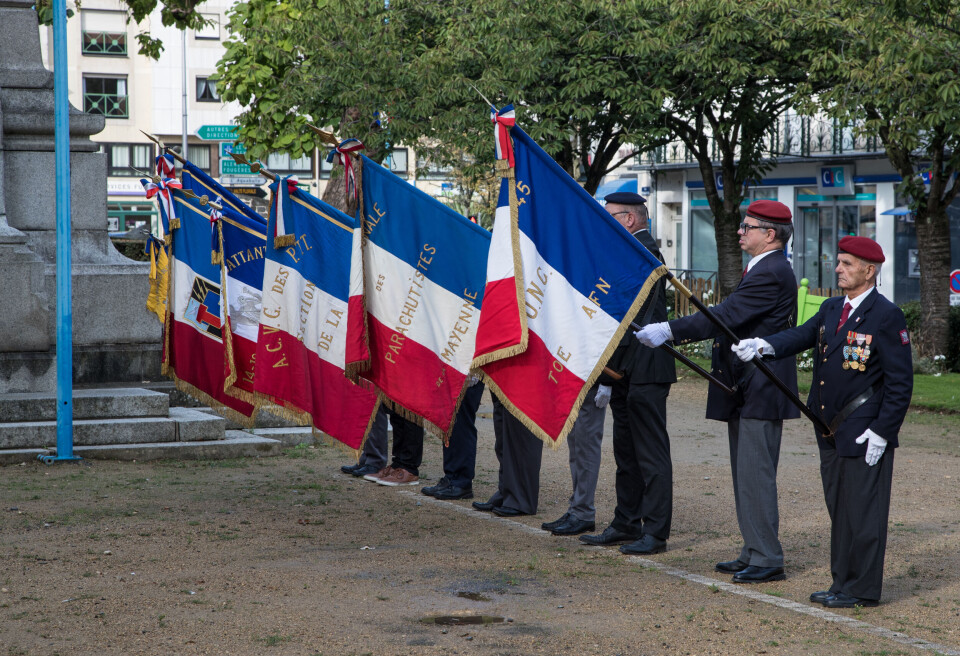-
French mayors deserve respect for an often thankless job
Columnist Nick Inman stands up for local officials
-
How Lyon death is reshaping French politics ahead of 2027 elections
Columnist Simon Heffer says the killing of far-right student activist Quentin Deranque will have reverberations around Europe
-
Tipping in France: Are card machine tip requests going too far?
Payment terminals increasingly ask if customers want to pay an extra amount
Comment: The Algerian War remains controversial in France 60 years on
The peace treaty was signed on March 18, 1962 but France still feels the impact of the war today

Want to start an argument in France? Bring up the topic of the Algerian War, which officially ended in a peace treaty signed 60 years ago this month.
Passions still run high about what the conflict achieved, and these feelings have been inherited by the grandchildren of those involved.
From 1830 to 1954, Algeria was indisputably part of France. It might have been a colony but it was divided into three departments which had equal status to their counterparts across the Mediterranean.
The problem with colonies is that the longer they last, the more colonists – white European settlers – feel rooted to the territory. To be Algerian in the 1950s could mean two different things.
While most were culturally Arabic, African and Muslim, a large minority of the population was comprised of Christian and Jewish descendants of earlier colonists who regarded North Africa as their permanent home but who were culturally entirely French.
Explaining what happened next in objective terms is not easy. Some members of the Arabic-Muslim minority expressed their resentment towards French ‘occupation’ and domination through violence.
Terrorists or freedom fighters
On November 1, 1954, they launched a war of liberation and the French authorities responded with further repression.
In Paris, the rebellion was seen as futile terrorism that could never succeed. It demanded to be put down for the sake of restoring order.
The French army, including a large contingent of Arabic Algerians, was tasked with defeating the rebels of the FLN (National Liberation Front) by whatever means necessary. Increasingly, that meant resorting to torture.
Successive French governments tried to win the war and take back control but the problem proved beyond the capabilities of the Fourth Republic (established after World War Two).
Threatened by a military coup, the political system collapsed in impotence.
General de Gaulle was invited to come out of retirement and form the Fifth Republic. He was allowed to write the constitution he wanted and, in so doing, he gave the president (himself) the powers he insisted were needed to deal with Algeria.
Read more: Could France soon have a Sixth Republic?
De Gaulle was backed by many establishment and military figures who assumed he would successfully reassert French sovereignty in Algeria, echoing the Liberation of 1944 – the only end to the war they could envisage.
The general, however, had come to see the ‘loss’ of the war and the independence of Algeria as inevitable. It just needed skillful handling.
“Je vous ai compris” (I have heard you), he announced, seemingly to all parties concerned and to no one at the same time.
The general presided over swift negotiations to hand power over to ‘the enemy’, to be confirmed by a referendum. To the losers, it was as if ‘the terrorists’ had won and an integral part of France had been traumatically lost through the betrayal of the hero of right-wing, nationalist politics.
‘Pieds noirs’ felt compelled to leave homeland
There were two long-lasting consequences of the Evian Accords by which Algeria became independent.
One was that 800,000 European Algerians, known as pieds noirs, felt compelled to leave their ancestral homeland and take refuge in France, where they did not feel they belonged.
The other was that the 200,000 Arabic-Muslim Algerians who had fought alongside the French army, the harkis, felt abandoned. Tens of thousands were killed after the French withdrawal, for which President Macron officially apologised in 2021.
Read more: Four questions to understand the 1961 killing of Algerians in Paris
All this left a poisonous legacy in French politics. At first, there was silence on the issue because it was too raw and divisive, but ‘Algeria’ re-merged in the 1990s and now every contemporary politician needs to be wary of questions about the conflict.
How should the history of French colonialism be taught in schools? With pride, or shame and apologies?
This is the fracture coloniale which is brought into every debate about immigration and the place of Islam in French society.
Whatever you do, don’t mention the war. You won’t get away with it.
Do you have strong views about the conflict too? Tell us why at news@connexionfrance.com
Related articles
I read the 5,000-page compendium that tries to explain France
Simon Heffer: Macron has to give Muslims a better future
Did you have your morning 'kawa'? 12 Arabic words and expressions used in French
























